Widow donates more than 200 cameras owned by her late husband to Cork club
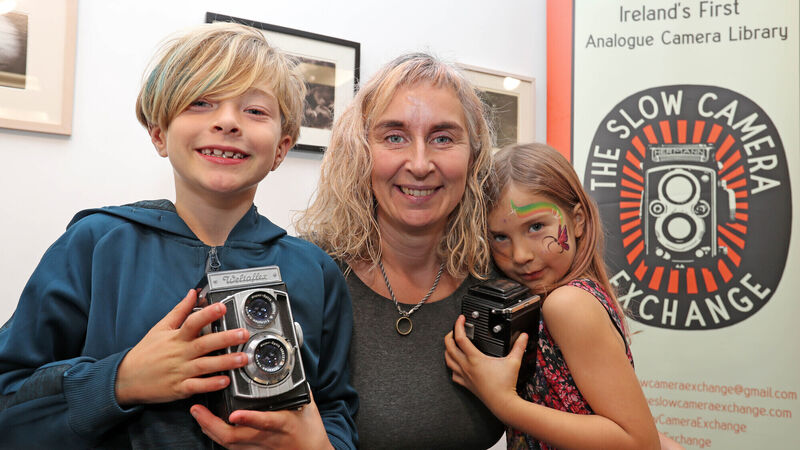
Jessica Marbe with her son Otto and daughter Anna Rose, with some of her late husband, Hermann’s cameras which have been donasted to the Camera Exchange. An exhibition of works by the Slow Camera Exchange club, runs until No vember 10 at the city library. Pictures: Jim Coughlan
WE live in a fast-paced technological age, but there are people who are still interested in a slower approach to life and the arts, as evidenced by the recent launch of the Slow Camera Exchange (SCE) at Cork City Library.
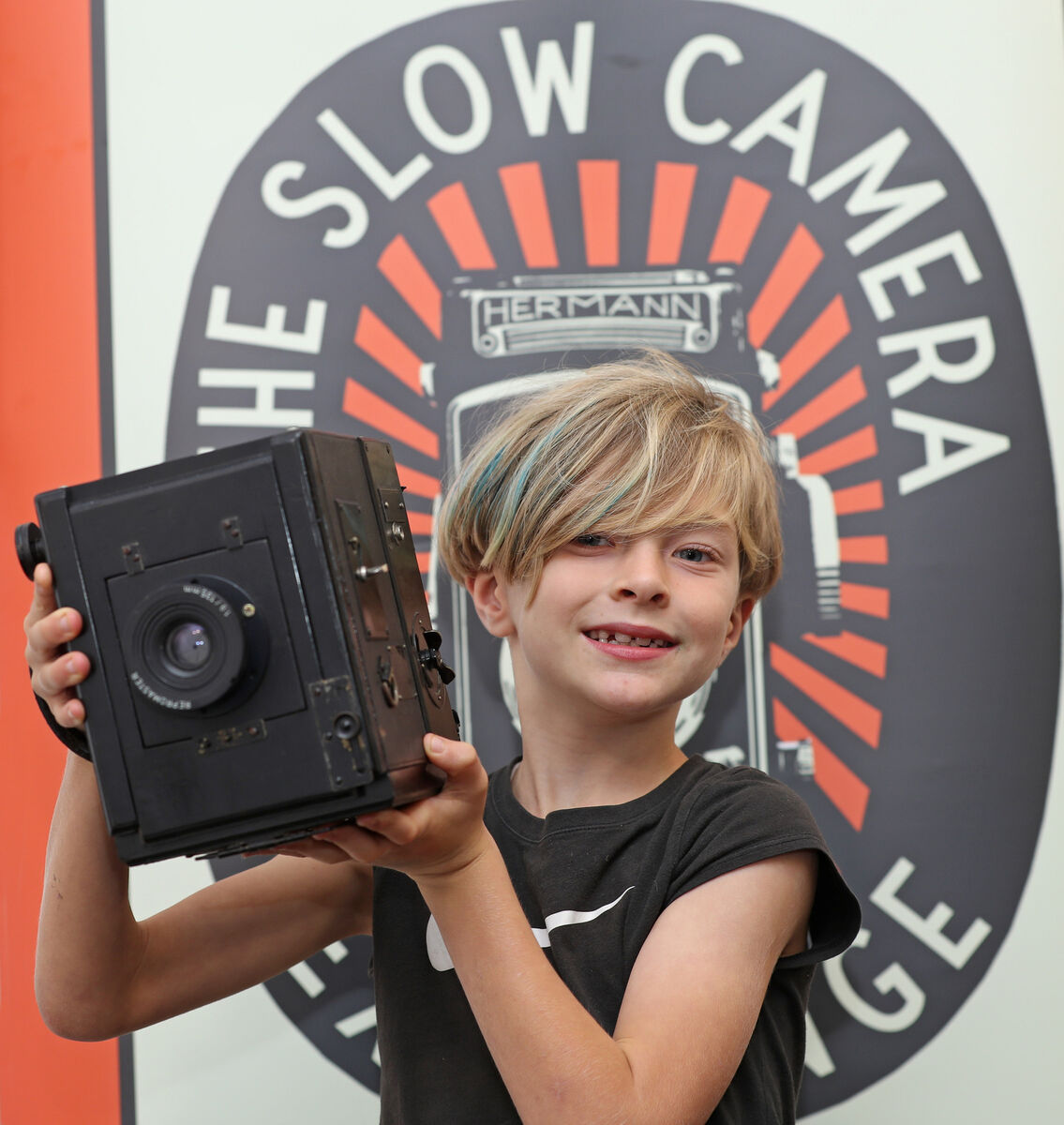
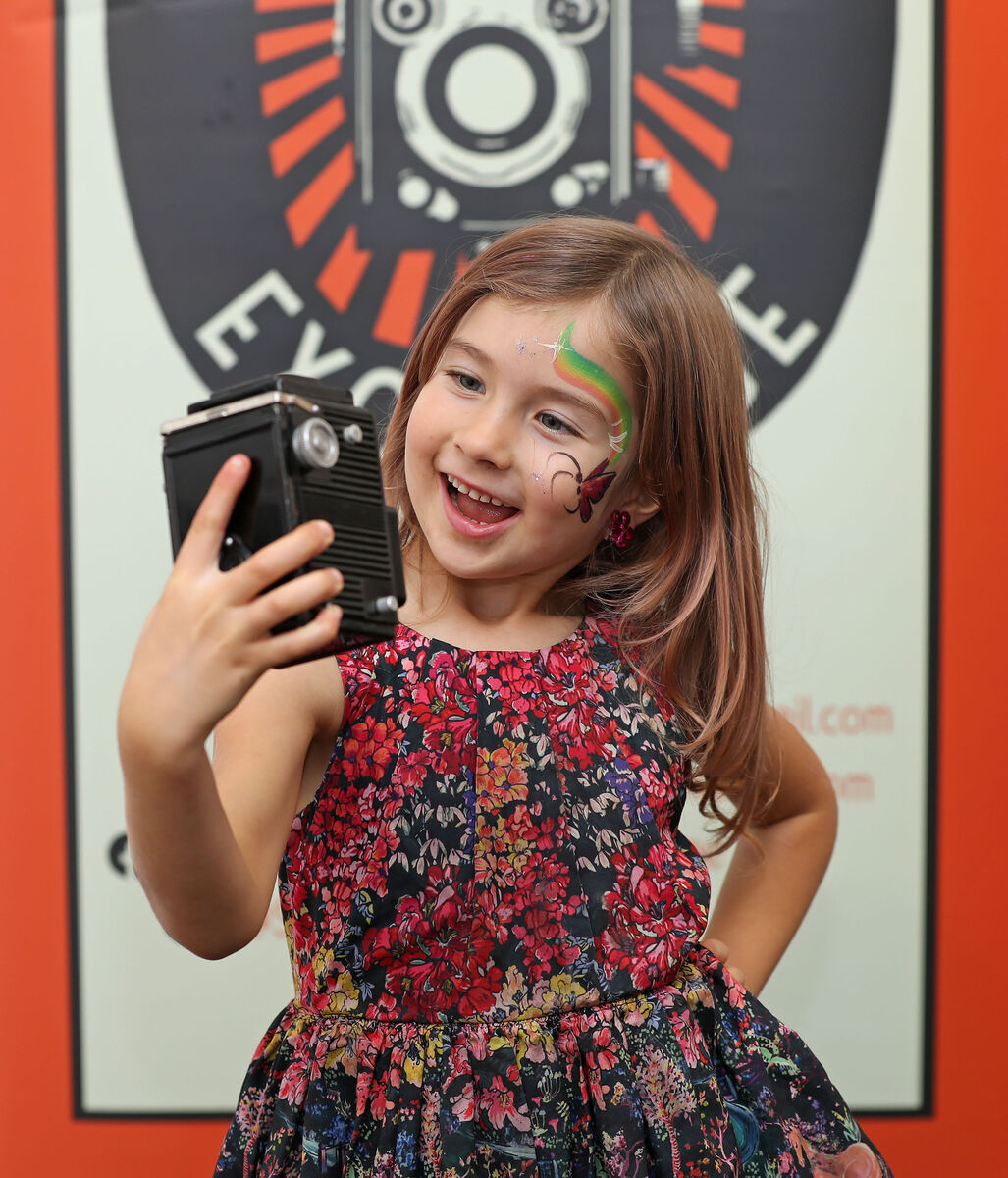
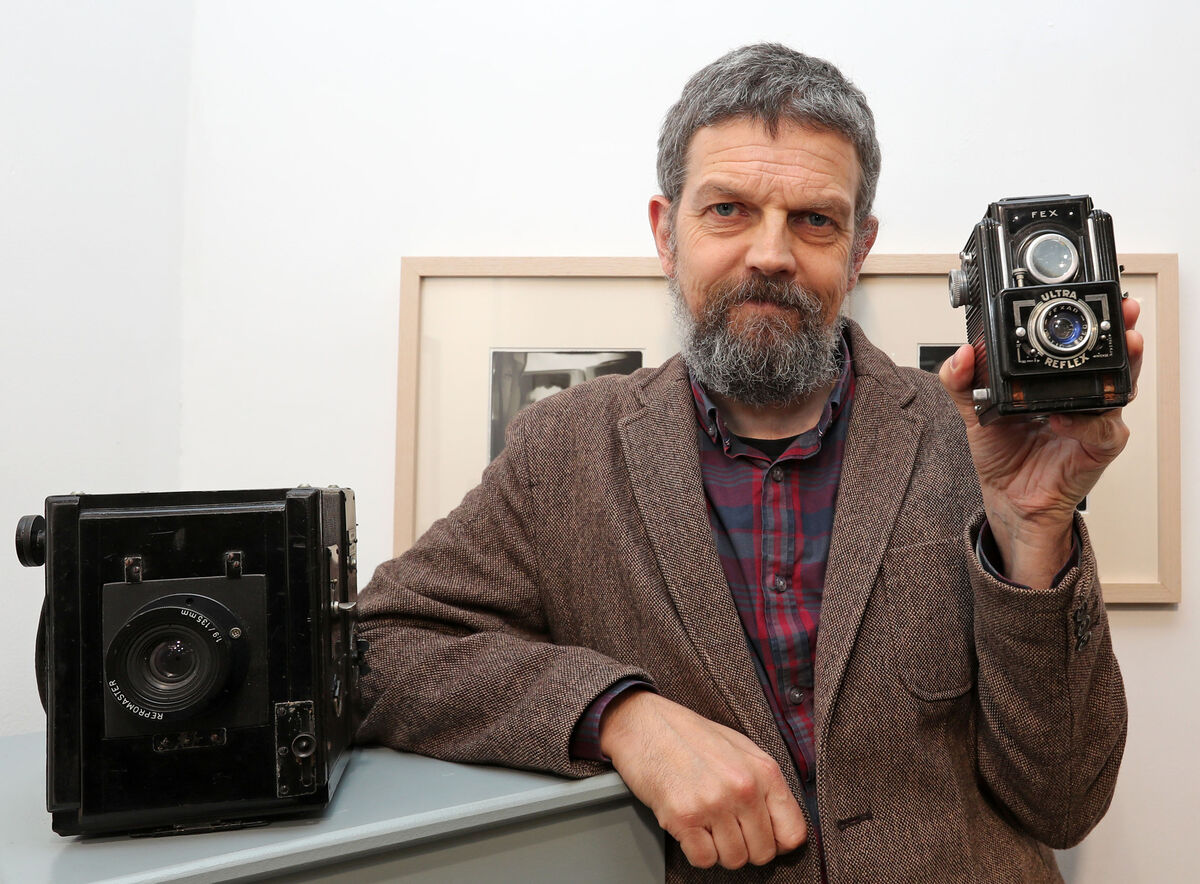
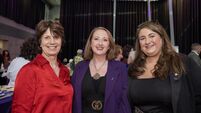

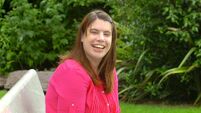
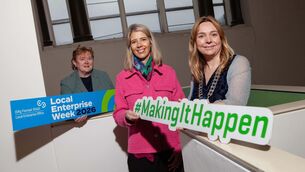



 App?
App?


